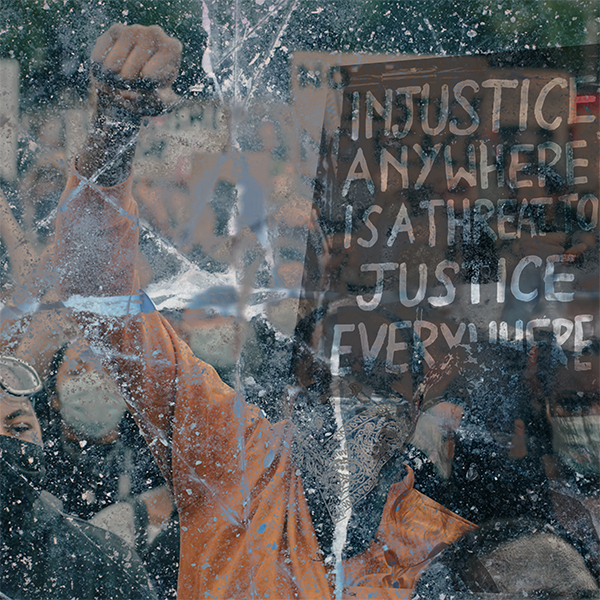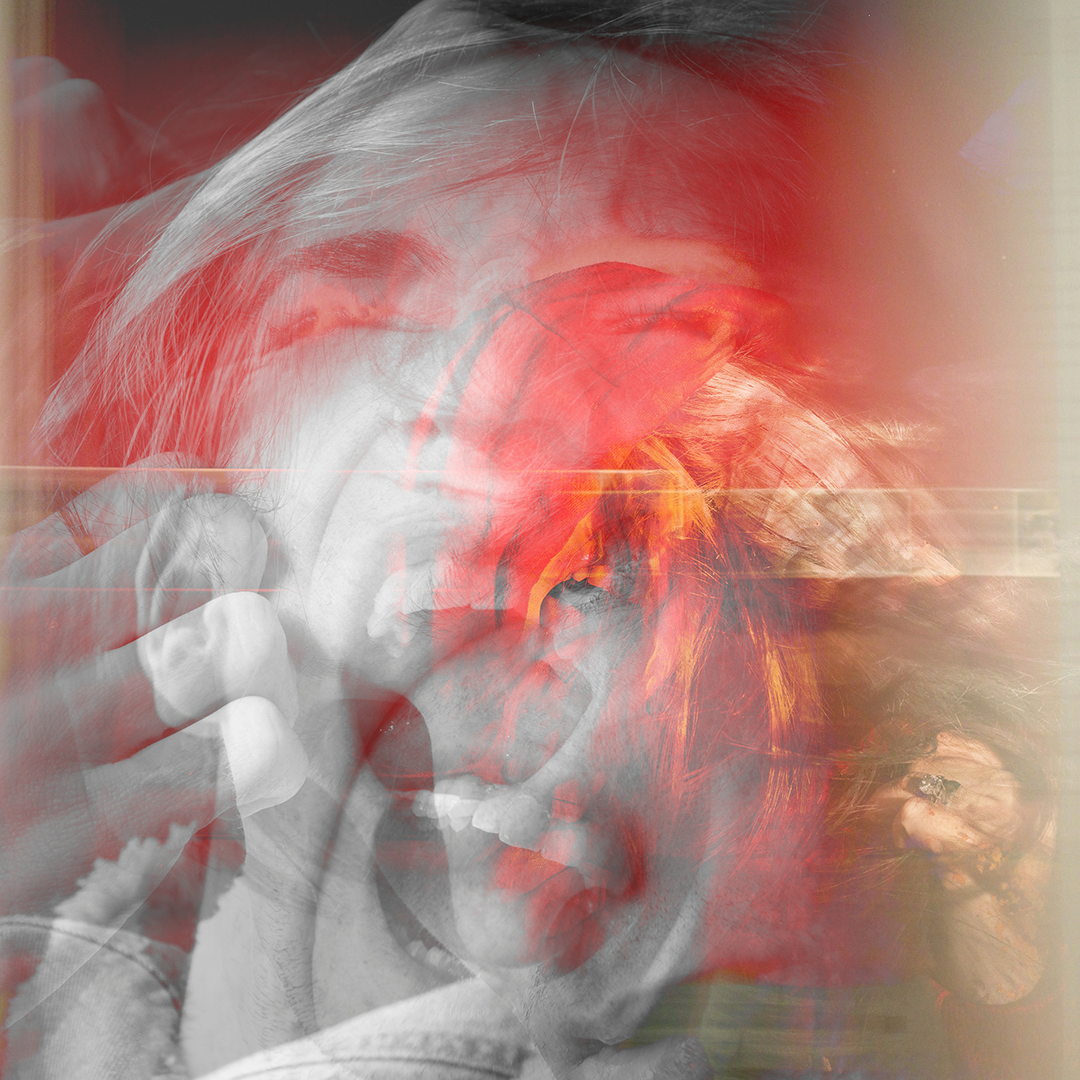Honoring the Lives of Women Who Refuse to Be Scrubbed Away
Once or twice a year, I take a pilgrimage to a Korean spa. My mother and I go together to experience the saunas, hot water baths, and sweat rooms; some spas even have cafes with Korean food that can please my mother’s discerning palate. We get the wet-scrub massage, where you soak in a super-hot tub for twenty minutes and then endure extreme exfoliation performed by women often between the ages of 50 to 70 years old. No amount of chemical microdermabrasion could achieve what these women do in an hour as they scrub away dead skin cells with soap, hot water, and a washcloth.
Often, the woman who scrubs makes small talk in Korean. My mother taught me never to despise someone for their work or station, so I make sure to reply with respect: “Yes, please. More pressure, please.” Pleasantly surprised I can speak the language, she may open up about her life as I listen. I will learn that she is a mother, or a grandmother, who has raised her kids and sent them to university through doing the grueling work of scrubbing other people’s backs for twenty years. Like Aslan tearing off Eustace’s dragon skin, she rubs away, my dead skin cells flying off like eraser rolls. I tell her that she is an amazing mother or grandmother and that her kids must be so grateful for her. I think about how much her hands must ache from that repetitive motion. My skin is radiant by the time the scrubbing massage is done, and so is my mom’s. I am not worthy to tie the sandals of these women’s feet.
The Shooter’s Asian Spa
This is a different picture from the speculative reports of the massage spas and workers who were killed by a white Christian gunman claiming sex addiction as his rationale for violence and who supposedly frequented one of the spas. Whether he was correct in assuming that the others were spaces of illicit sexual activity or were more similar to the family-friendly spa I just described—I’m not going to indulge in that speculation. Instead, I’ll point out that one of the victims was a grandmother who did cooking and cleaning at the spa. She could have been a cleaning maid at a hotel, where people conduct all manner of secret transgressions while presenting as respectable in public.
When the deceased women are framed around the killer’s addiction, such speculation painfully flattens their stories. Instead of being imagined as a grandmother, mother, daughter, or wife, they are presented to the public and media as sexualized objects for someone else’s convenience and consumption—an old and sick trope of Asian women.
When the deceased women are framed around the killer’s addiction, such speculation painfully flattens their stories...they are presented to the public and media as sexualized objects for someone else’s convenience... Share on XThe Baptist church which baptized the killer and recently expelled him as a member emphasized that he alone was responsible, and not the women. But is that really true? Many are pointing out that the Atlanta shootings are also the toxic fruit of evangelical purity culture, which presents women as sexual objects to dominate or temptations to abhor. My aim here is not to critique alone, but instead to propose also how Scripture-beholden Christians can intentionally honor women, particularly by considering the biblical stories of women who in the most unjust and unrighteous circumstances are considered righteous because of their persevering courage. In doing so, I hope to also honor the women and grandmothers killed in Atlanta.
Jesus’ Grandmothers, Refusing Erasure
Matthew’s account of Jesus’ lineage includes women—explicitly mentioning three women with surprising stories: Tamar, Rahab, and Ruth.
Tamar’s tale never makes it to Sunday school. After her husband Er’s death, his second-born brother Onan is supposed to help her conceive a child, as a childless woman was vulnerable to destitution and erasure in her world. Onan has no problem using her body but intentionally avoids impregnating her (spilling “his seed on the ground”), and God puts him to death. Judah promises that his third son Shelah would marry her, but Tamar knows Judah has no intention of keeping his promise. So she does the unthinkable: she dresses as a prostitute and sits by the side of a road Judah frequents. Judah solicits sex from her, and she requests his signet, cord, and staff as a pledge until he can send payment, keeping them while a baby grows in her belly. When Judah hears that she is pregnant, he intends to kill her with fire. But she sends his three items and says, “By the man to whom these belong, I am pregnant.” Realizing he is the baby’s father (babies, actually; Tamar gives birth to twins), Judah says, “She is more righteous than I, since I did not give her to my son Shelah.” He calls her incredible act “righteous” because she was holding him to his responsibility to care for her.
This story is not told to reify prostitution nor extramarital sex nor incest. It’s told to indict Judah and to uphold Tamar; it is the unexpected, intentional honoring of a woman who survived loss, abuse, and betrayal, and who refused to be erased in a society that would all too easily forget her pain and suffering. Through the lens of sexual purity, Tamar is a mess: a prostitute, a temptation, an instigator of incest, and an inconvenient foreigner. But through the lens of biblical justice and righteousness, Tamar has clung to the justice and righteousness of God and found victory in her stubborn refusal to be forgotten.
Through the lens of sexual purity, Tamar is a mess...But through the lens of biblical justice and righteousness, Tamar has clung to the justice and righteousness of God. Share on XNext, we have Rahab, who was a prostitute in Jericho when she protected two Israelite spies. She asks for protection from the God of Israel, and not only does God spare her and her family, but she marries an Israelite and becomes the ancestor of Boaz, David, and Jesus. On this side of heaven, we will never know the story of how Rahab ended up in her line of work. Regardless, she is not merited according to her sexual past. She is a survivor and is included as the courageous outlier of the Canaanites, and the great-ancestor to the Lion of Judah—all because she chose the justice and righteousness of God. How many of our churches could claim to be a suitable space for such women of courage? It would reduce Rahab to sexual objectification to say that her presence in Jesus’ lineage is a sign of Jesus uniting his humanity with imperfect sinners. Perhaps it is more accurate to say that Jesus is following in the courageous footsteps of his grandmothers who refused to stay silent and be forgotten in the face of injustice and who dared to see themselves as part of the story of redemption.
Finally, we have in Ruth someone whose life is the opposite of the fairytale dream: a woman who has lost her husband and all-male protectors, is without children, and has a bereaved mother-in-law to care for. Ruth is celebrated by Christians because of her marriage to Boaz, but Boaz is a minor character in the book of Ruth, which starts with Ruth and Naomi shrouded in grief and ends with Ruth and Naomi celebrating in joy. If viewed through a sexual lens, Ruth’s victory is the moment of her remarriage. However, in the story, Naomi’s vindication and victory is when the village women sing around her, “Your daughter-in-law who loves you, who is more to you than seven sons, has given birth to your grandson.”
The hero is not Boaz; it is Ruth, who is worth more than seven sons. A foreigner, a stranger turned kin is part of the kinsman-redemption story. Ruth’s son Obed becomes the grandfather of David. David is the grandson of a foreign woman, a refugee who subjected herself to dangerous border crossings and possible exploitation working in the fields (Boaz warns her not to go elsewhere because she might be harmed) so that she could feed Naomi. Sexual purity is not the focus of the story nor what saves. It is covenantal love, the love of one who lays down her life for her friends. Naomi has no access to her kinsman-redeemer without the daughter-in-law who chose to stay by her side. Boaz may bear the title of kinsman-redeemer, but Ruth, whose Moabite name is included in the Scriptures, is the one who makes such redemption possible in her choosing to love and survive—and in her refusal to let her mother and herself be forgotten.
These stories are not merely the presence of sinners and foreigners in salvation history. Such rhetoric flattens the reality of the courage of these women for the sake of reaffirming sexual purity and sexual fulfillment. These women protest the conditions of death and disease that leave them widows, protest the broken promises of men and the societies that tolerate their sidelined suffering, and they say, “I refuse to be invisible, to be forgotten.” Jesus inherits these stories of courageous women and grandmothers who resorted to unlikely and risky actions (that today would be labeled sexually improper) to protest the unrighteousness of their contexts. Matthew’s genealogy includes these women whose very lives protest sin and oppression. Jesus has come not merely to deliver us from sexual impurity or disembodied sin. He has come to deliver us from the powers and principalities, and from systems that keep us and our mothers and grandmothers, our daughters and our sons, oppressed. Sexual purity alone is an insufficient rubric for understanding how these women took seriously the righteousness and justice of God.
Jesus inherits these stories of courageous women and grandmothers who resorted to unlikely and risky actions (that today would be labeled sexually improper) to protest the unrighteousness of their contexts. Share on XRemembering Our Grandmothers
The Asian women who were killed by the lone gunman in Atlanta were presented as the objects and representatives of his sexual delusion, filtered through racism and pressed through evangelicalism that is obsessed with purity culture at the expense of larger issues involving loving one’s neighbor rightly. The stories that have emerged about the women show instead that they were mothers and grandmothers who worked to feed children and lived for their grandchildren. They were made in the imago Dei, and they sacrificed for their children with labor considered beneath the station and mention of respectable society. Yet, God sees them, just as he sees and names Tamar, Rahab, Ruth—and for them he died and rose again. We should honor these women, the Asian victims at Atlanta, and these biblical examples of sisters and mothers who confronted unrighteousness and refused to be forgotten. The Lord has certainly not forgotten them. Perhaps it is time that our pulpits remember and honor these courageous women of faith whose sandals we are not worthy to tie.
These are the sermons I wish I had heard from the pulpit. I am charging us to behold the women who are so painstakingly written into the stories of Scripture, not as aberrations in a story of men, but as radically-honored daughters in the redemption of God—including leaders like Deborah or Junia, or prayer-writers like Hannah or Mary—and that we honor the sacrifices that hit women and immigrants like Ruth and the grandmothers in Atlanta doubly hard. I want to hear the men honor the women without whom there would be no story of biblical faith, instead of being satisfied with women being scrubbed away from our awareness like dead skin, their memories obscured and their presence relegated to the neat and tidy corners of the church. But they defy such neat and tidy corners. Our biblical grandmothers refused to be erased in this way, and we will never learn to honor women if we cannot see these women as God sees them and acknowledge that through their unforgettable acts, God has forever woven them into his story of deliverance.
The artwork accompanying this article is called American Han (한) is by Sarah’s artist husband Shin Maeng (IG: @shinhappens). It is used with his permission.



